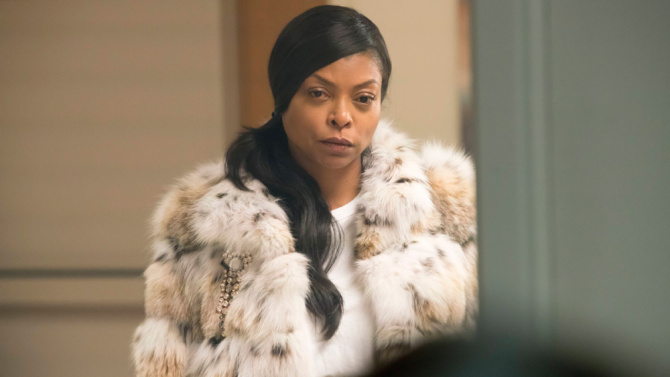All hail the angry women of 2016
Our tolerance for having unpleasant women on our screens has expanded to real pleasure at watching them


A free daily email with the biggest news stories of the day – and the best features from TheWeek.com
You are now subscribed
Your newsletter sign-up was successful
There were a lot of angry women on TV in 2016.
That's noteworthy given the emotional palette of this election season, which turned out to be so much about American anger, even as studies showed that America tolerates anger poorly in its female candidates. But while Hillary Clinton was counseled to channel her anger through minutely calibrated smiles, the truth on TV was changing. Our screens overflowed this year with women who'd just about had it. Women whose varieties of fury ranged from intense irritation to murderous bemusement to quiet hatred and pure reactive rage. And this wasn't just on intense dramas like Underground and Westworld or thrillers like Mr. Robot and Orphan Black. Angry women started showing up all over the place: on satires like Crazy Ex-Girlfriend, dramedies like Tig Notaro's One Mississippi and Donald Glover's Atlanta, absurdist shows like Dirk Gently's Holistic Detective Agency, comic book adaptations like Jessica Jones and Luke Cage, and whatever Orange is the New Black has turned out to be.
What's interesting isn't just the anger as such, but how our tolerance for having unpleasant women on our screens has expanded to real pleasure at watching them. There were furious women on television before. It's just that for a long time, the resigned exasperation of the sitcom housewife was as much female anger as we were prepared to accept without turning on the character. Women who displayed greater extremes tended either to be written as the villains of the piece or got read that way; Anna Gunn memorably wrote about how the latter happened to her character Skyler White on Breaking Bad.
The Week
Escape your echo chamber. Get the facts behind the news, plus analysis from multiple perspectives.

Sign up for The Week's Free Newsletters
From our morning news briefing to a weekly Good News Newsletter, get the best of The Week delivered directly to your inbox.
From our morning news briefing to a weekly Good News Newsletter, get the best of The Week delivered directly to your inbox.
For so long on television, the housewife was supposed to remain resigned and exasperated, the irritated observer of her husband's shenanigans. Her irritation wasn't supposed to translate to any action that would end the dynamic. A dull recipe indeed.
It's encouraging, then, to see alternatives not just emerging — they already had, in shows like Buffy the Vampire Slayer, The Femme Nikita, Top of the Lake, The Fall, and even The Good Wife — but exploding. Volume counts, and so does range. The TV women of 2016 have access to a huge range of moods that just weren't as available to them before.
Has that expansion in emotional representations helped us tolerate and accept female characters who act on their dissatisfactions? It seems likely. For all that many Game of Thrones viewers dislike Cersei, they appreciate the rage and revenge that informed her actions this season. Fans of Orphan Black love Helena, the clone who treats revenge as a form of play. And when Abbie was killed off in Sleepy Hollow, fans were furious, her resentments notwithstanding.
Rage and resentment aren't beautiful emotions, and ours is not a culture that trains us to sympathize with un-beautiful women. It's a sign of something — Progress? The crisis of the present? — that so many have graduated from glowing to glowering on our screens, and that their anger presented not as a reason to abandon but to join them.
A free daily email with the biggest news stories of the day – and the best features from TheWeek.com
All hail the angry women of 2016.

Lili Loofbourow is the culture critic at TheWeek.com. She's also a special correspondent for the Los Angeles Review of Books and an editor for Beyond Criticism, a Bloomsbury Academic series dedicated to formally experimental criticism. Her writing has appeared in a variety of venues including The Guardian, Salon, The New York Times Magazine, The New Republic, and Slate.
-
 Can Europe regain its digital sovereignty?
Can Europe regain its digital sovereignty?Today’s Big Question EU is trying to reduce reliance on US Big Tech and cloud computing in face of hostile Donald Trump, but lack of comparable alternatives remains a worry
-
 The Mandelson files: Labour Svengali’s parting gift to Starmer
The Mandelson files: Labour Svengali’s parting gift to StarmerThe Explainer Texts and emails about Mandelson’s appointment as US ambassador could fuel biggest political scandal ‘for a generation’
-
 Magazine printables - February 13, 2026
Magazine printables - February 13, 2026Puzzle and Quizzes Magazine printables - February 13, 2026
-
 Walter Isaacson's 'Elon Musk' can 'scarcely contain its subject'
Walter Isaacson's 'Elon Musk' can 'scarcely contain its subject'The latest biography on the elusive tech mogul is causing a stir among critics
-
 Welcome to the new TheWeek.com!
Welcome to the new TheWeek.com!The Explainer Please allow us to reintroduce ourselves
-
 The Oscars finale was a heartless disaster
The Oscars finale was a heartless disasterThe Explainer A calculated attempt at emotional manipulation goes very wrong
-
 Most awkward awards show ever?
Most awkward awards show ever?The Explainer The best, worst, and most shocking moments from a chaotic Golden Globes
-
 The possible silver lining to the Warner Bros. deal
The possible silver lining to the Warner Bros. dealThe Explainer Could what's terrible for theaters be good for creators?
-
 Jeffrey Wright is the new 'narrator voice'
Jeffrey Wright is the new 'narrator voice'The Explainer Move over, Sam Elliott and Morgan Freeman
-
 This week's literary events are the biggest award shows of 2020
This week's literary events are the biggest award shows of 2020feature So long, Oscar. Hello, Booker.
-
 What She Dies Tomorrow can teach us about our unshakable obsession with mortality
What She Dies Tomorrow can teach us about our unshakable obsession with mortalityThe Explainer This film isn't about the pandemic. But it can help viewers confront their fears about death.
